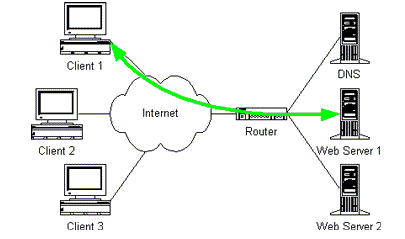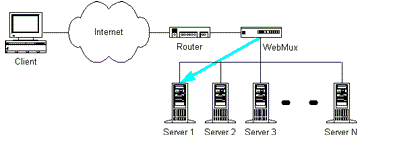|
- Round Robin uses a DNS and a number of web servers to form a web farm. The DNS returns
the IP addresses of the web servers to clients in a round robin fashion. On the surface this
looks like a good solution to balance a web load at no or minimum cost.

- On closer examination however, it cannot handle the task well. The DNS at the clients'
sites remembers the IP address returned. It will directly request the server with that IP
address the next time. As time passes, the older servers in the group will likely to have
heavier load and thus easier to crash.
- An even bigger problem arises when a server is down or crashed. Not only will the DNS continue to return its IP address to the new clients, many old clients also remember the
IP address. The web site will appear to be down when these clients requests web pages with
the IP address. In an extreme case, one down server can make the web site appear to be
down to majority of the clients while the rest of the servers in the farm are up and
idling.
- The solution is to use WebMux™ to direct the web traffic.

- To the outside world, the whole farm has a single IP address. WebMux checks the
availability of each server constantly and balances the load among the available servers. As
long as one server is available, the web site will appear to be up the entire outside
world. As an additional protection, when WebMux detects a server failed, it can send a
page to alert the operator.
|